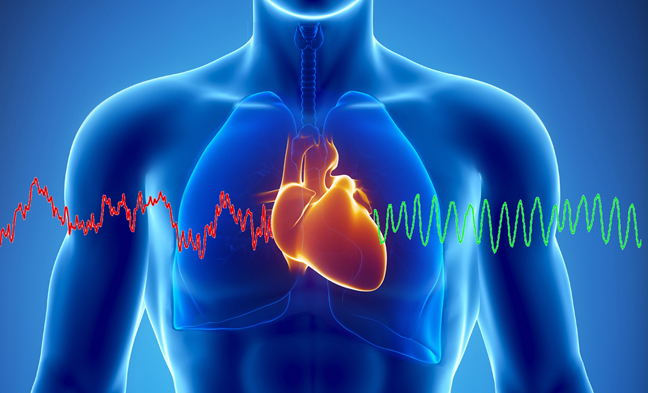For centuries, the heart has been considered the source of emotion, courage and wisdom. At the Institute of HeartMath (IHM) Research Center, reserchers are exploring the physiological mechanisms by which the heart communicates with the brain, thereby influencing information processing, perceptions, emotions and health. They are asking questions such as: Why do people experience the feeling or sensation of love and other positive emotional states in the area of the heart and what are the physiological ramifications of these emotions? How do stress and different emotional states affect the autonomic nervous system, the hormonal and immune systems, the heart and brain? The following is an excerpt from the HearthMath website:
“Over the years the IHM team has experimented with different psychological and physiological measures, but it was consistently heart rate variability, or heart rhythms, that stood out as the most dynamic and reflective of inner emotional states and stress. It became clear to them that negative emotions lead to increased disorder in the heart’s rhythms and in the autonomic nervous system, thereby adversely affecting the rest of the body. In contrast, positive emotions create increased harmony and coherence in heart rhythms and improve balance in the nervous system. The health implications are easy to understand: Disharmony in the nervous system leads to inefficiency and increased stress on the heart and other organs while harmonious rhythms are more efficient and less stressful to the body’s systems.
More intriguing are the dramatic positive changes that occur when techniques are applied that increase coherence in rhythmic patterns of heart rate variability. These include shifts in perception and the ability to reduce stress and deal more effectively with difficult situations. We observed that the heart was acting as though it had a mind of its own and was profoundly influencing the way we perceive and respond to the world. In essence, it appeared that the heart was affecting intelligence and awareness. The answers to many of our original questions now provide a scientific basis to explain how and why the heart affects mental clarity, creativity, emotional balance and personal effectiveness. Our research and that of others indicate that the heart is far more than a simple pump. The heart is, in fact, a highly complex, self-organized information processing center with its own functional ‘brain’ that communicates with and influences the cranial brain via the nervous system, hormonal system and other pathways. These influences profoundly affect brain function and most of the body’s major organs, and ultimately determine the quality of life.
In our internal environment many different organs and systems contribute to the patterns that ultimately determine our emotional experience. However, research has illuminated that the heart plays a particularly important role. The heart is the most powerful generator of rhythmic information patterns in the human body. As we saw earlier, it functions as sophisticated information encoding and processing center, and possesses a far more developed communication system with the brain than do most of the body’s major organs. With every beat, the heart not only pumps blood, but also transmits complex patterns of neurological, hormonal, pressure and electromagnetic information to the brain and through-out the body. As a critical nodal point in many of the body’s interacting systems, the heart is uniquely positioned as a powerful entry point into the communication network that connects body, mind, emotions and spirit.”
To read Science of The Heart: Exploring the Role of the Heart in Human Performance (An Overview of Research Conducted by the Institute of HeartMath) in full be sure to visit the amazingness that is HeartMath.org.




